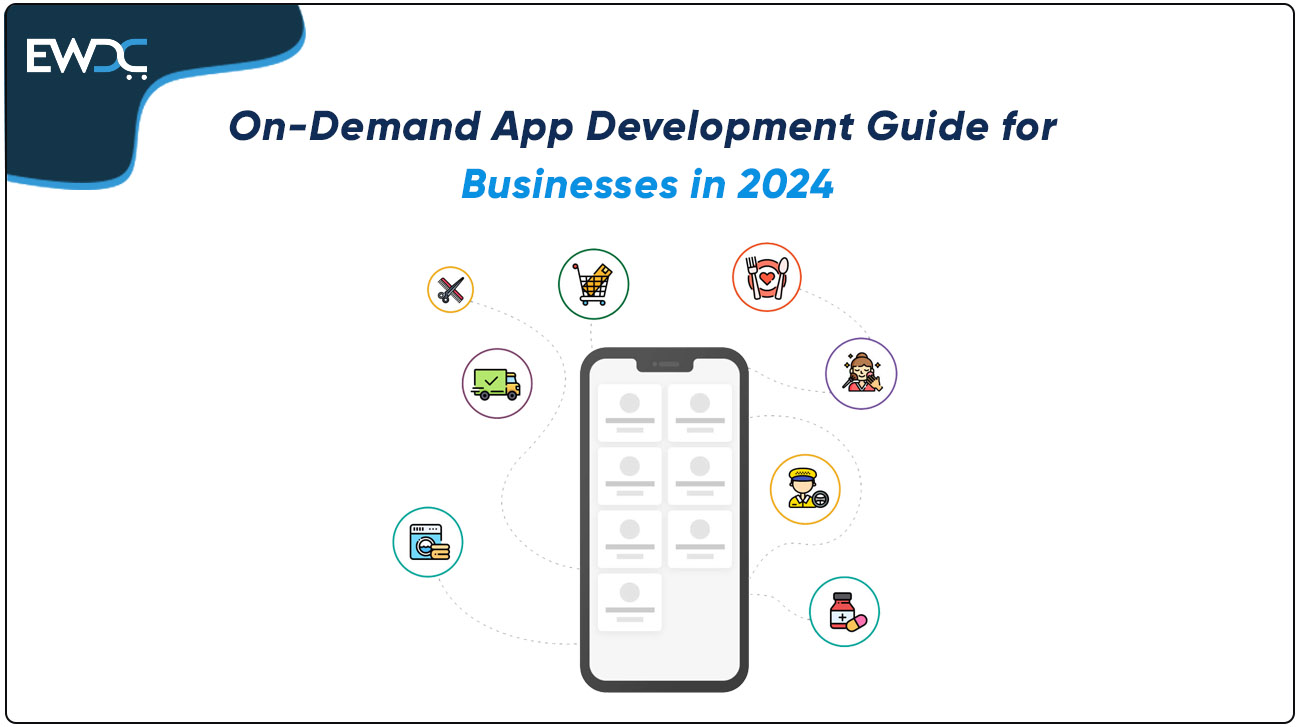
Introduction
On-demand apps have become increasingly popular in recent years as people appreciate the convenience of ordering goods and services at the touch of a button. For businesses, on-demand applications can provide many benefits, including increased sales, improved customer satisfaction, and reduced costs.
On-demand apps have become increasingly popular in recent years, as people have come to appreciate the convenience of being able to order goods and services at the touch of a button. For businesses, on-demand apps can offer a number of advantages, including:

On-demand apps make it easy for customers to find and purchase your products and services. By making your business available on-demand, you can reach a wider audience and generate more sales.

On-demand apps provide customers with a convenient and efficient way to get the goods and services they need. By meeting your customers’ needs on their own terms, you can improve their overall satisfaction with your business.

On-demand apps can help businesses to reduce costs by automating tasks and streamlining operations. For example, an on-demand food delivery app can help a restaurant reduce its labour costs by automating the order-taking and delivery process.

On-demand apps can help businesses increase brand awareness by putting their brand in front of a wider audience. When customers use your on-demand app, they are constantly exposed to your branding and messaging.

On-demand apps can help businesses to enhance customer loyalty by providing a personalized and convenient experience. For example, an on-demand ride-hailing app can track a customer’s ride preferences and send them personalized offers.
Overall, on-demand apps can offer a number of significant benefits for businesses. By developing and launching an on-demand app, businesses can increase sales, improve customer satisfaction, reduce costs, increase brand awareness, and enhance customer loyalty.
Here are some specific examples of how businesses are using on-demand apps to achieve their goals:
If you are considering developing an on-demand app for your business, there are a few things you should keep in mind:
Developing and launching an on-demand app can be a complex undertaking, but it can also be a very rewarding one. By following the tips above, you can increase your chances of success.

If you are thinking about developing an on-demand app for your business, this blog post will provide you with a comprehensive guide. We will cover everything from defining your app idea to launching your app and keeping it updated.
What kind of on-demand service do you want to offer? What are the core features of your app? Who is your target audience? Once you have a clear understanding of your app idea, you can start to develop a business plan.
Who are your competitors? What are their apps like? How can you differentiate your app from the competition? It is important to understand the market before you start developing your app so that you can create a product that is in demand and that stands out from the crowd.
There are two main mobile app development platforms: iOS and Android. You will need to decide which platform(s) you want to develop your app for. If you are not sure, you can always develop your app for both platforms.
If you do not have the in-house expertise to develop your own app, you will need to hire a development team. There are many reputable app development companies out there, so be sure to do your research and choose a team that has experience in developing on-demand apps.
The design of your app is important for both usability and aesthetics. You want to create an app that is easy to use and navigate, and that is also visually appealing.
Before you launch your app, it is important to test it thoroughly to make sure that it is bug-free and works as expected. You can test your app yourself or hire a QA team to do it for you.
Once your app is tested and ready to go, you can launch it on the App Store and Google Play. Be sure to market your app and promote it to your target audience.
Here are some additional tips for developing a successful on-demand app:
Developing an on-demand app can be a great way for businesses to increase sales, improve customer satisfaction, and reduce costs. However, it is important to follow the tips in this blog post to create a successful product.
By defining your app idea, researching the market, choosing the right development platform, hiring a qualified development team, designing a user-friendly and visually appealing app, testing your app thoroughly, and launching and promoting your app effectively, you can increase your chances of success.
We hope this blog post has been informative and helpful. If you have any questions about developing an on-demand app, please feel free to contact us.
FAQs
What is an on-demand app?
An on-demand app is a mobile app that allows users to order goods and services at the touch of a button. On-demand apps can be used for a variety of purposes, such as ordering food, booking a ride, or hiring a handyman.
What are the benefits of on-demand apps for businesses?
There are a number of benefits of on-demand apps for businesses, including:
How do I define my app idea?
To define your app idea, you need to consider the following:
How do I research the market?
To research the market, you need to identify your competitors and analyze their apps. You should also look for unmet needs in your target market.
How do I choose a development platform?
When choosing a development platform, you need to consider the following:
How do I hire a development team?
When hiring a development team, you should consider their experience in developing on-demand apps and their quotes.